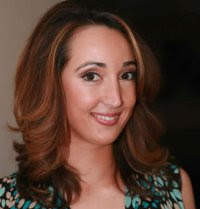
Students often ask me: "What's the job market like for people with master's degrees in psychology?"
This question is a very broad question and the answer is accordingly broad because there are so many paths that an undergraduate psychology major can take when choosing to pursue a master’s degree. There are different types of masters degrees that one can earn in psychology and each of these degree paths can lead to a career in a multitude of settings.
For example, one may work as a research assistant, a psychiatric aide at a mental health facility, a personnel manager, a supervisor in a mental health facility for developmentally disabled individuals, a statistical consultant for a corporation or organization, a behavioral intervention therapist with children, and more with a Master of Arts (MA) or Master of Science (MS) in general psychology. It all depends upon your area of specialization and how you choose to apply or generalize the skills you attained in your masters level training.
However, if one is interested in seeing clients for mental health problems but does not want to earn a doctorate (PhD or PsyD) in clinical psychology, pursuing a Masters in Marriage and Family Therapy (MFT) may be ideal. Marriage and Family Therapists are mental health professionals trained in psychotherapy and family systems, and licensed to diagnose and treat mental and emotional disorders within the context of marriage, couples, and family systems and often work in the same settings as licensed clinical psychologists.
Alternatively, a person who wishes to work in a similar setting to a licensed clinical psychologist without earning a PhD may choose to earn a Masters in Social Work (MSW) and specialize in the clinical track. Although many in the general public think of social workers as working primarily in agencies such as child protective services, etc., social work is quite a broad field. Clinical social workers may be involved in psychotherapy, individual or group counseling, crisis intervention, case management, child welfare, medical settings, employee assistance programs, substance abuse, aging/gerontology, hospice, and more.
The other specialty track for MSW is called community practice and focuses on community organizing. MSWs specializing in community practice may work in community organizing type and work in organizations such as government agencies, non-profit organizations, political agencies, or in similar settings may wish to earn an MSW and specialize in community practice, a specialty that is growing in popularity.
The good news is that the general career outlook for Counselors with a MFT, MSW, or other related Master’s degree on a whole is considered to be good, according to the 2010-2011 Occupational Outlook Handbook (OOH), which is published by the United States Department of Labor, Department of Labor Statistics and includes projections based on nationwide statistical trends.
If students visit this resource, they will find that the job outlook for those working in mental health with masters degrees during the 2008-1018 decade is quite good, with a projected 24% growth rate rate (a rate much faster than the average for all occupations) for mental health counselors, 14% growth rate (a rate faster than the average for all occupations) for MFTs, 16% for social workers in general, and 20% for clinical social workers. This is expected due to the aging of the baby boomer population*, an increase in the demand for substance abuse treatment due to the increased tendency of courts to sentence people to substance abuse rehabilitation rather than prison, and an increased demand for less costly quality mental health care as legislation is expected to require health insurance companies to cover mental health care. This last factor contributes to the overall positive outlook for all workers considered mental health counselors. *In addition, the demand for those specializing in aging should significantly increase. I have not even included information about increased demands for educational/school counselors, occupational therapists, or more in this brief summary. Students interested in those careers should definitely check them out since they are also expected to grow!
Source: Occupational Outlook Handbook Online http://www.bls.gov/OCO/
More blogs to come about how to apply the skills that you learn as a psychology major or masters student out in the work force




What a great resource! I get asked these questions in class, too! Thanks for sharing the information!
ReplyDeleteyou have mentioned lots of area in which i can get a job after taking degree in psychology which are related to psychology fields. but what are other field where i can get job after taking degree in psychology like human resource consultant, business adviser. can you give much information about it?
ReplyDeleteHello I am very happy with your blog post,Thanks for sharing the useful post.
ReplyDeleteOnline Marriage And Family Therapy Programs California
Licensed Professional Clinical Counselor California
Online Forensic Psychology Degree
Online Masters In Clinical Psychology
Online Doctor Of Psychology
Online Clinical Doctor Of Psychology Program California